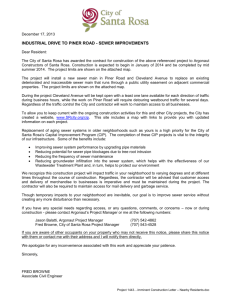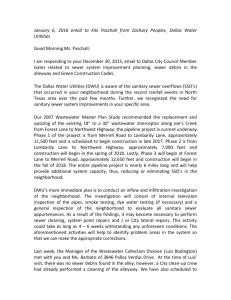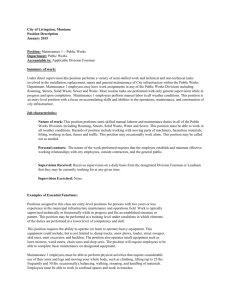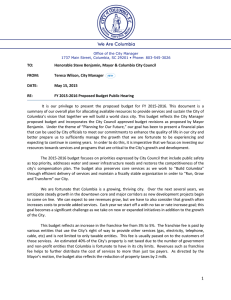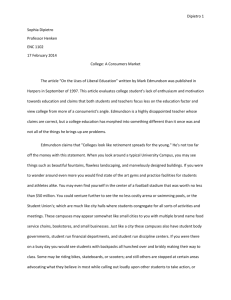Memo #2014-07 - North Carolina State Treasurer
advertisement
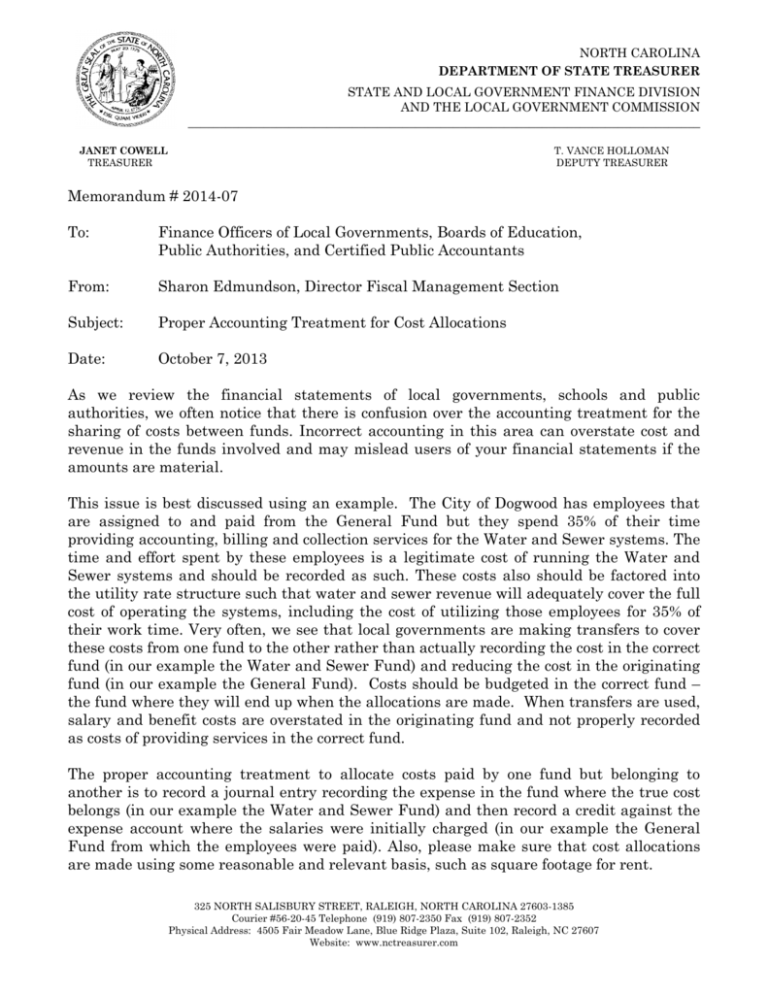
NORTH CAROLINA DEPARTMENT OF STATE TREASURER STATE AND LOCAL GOVERNMENT FINANCE DIVISION AND THE LOCAL GOVERNMENT COMMISSION _________________________________________________________________________________ JANET COWELL TREASURER T. VANCE HOLLOMAN DEPUTY TREASURER Memorandum # 2014-07 To: Finance Officers of Local Governments, Boards of Education, Public Authorities, and Certified Public Accountants From: Sharon Edmundson, Director Fiscal Management Section Subject: Proper Accounting Treatment for Cost Allocations Date: October 7, 2013 As we review the financial statements of local governments, schools and public authorities, we often notice that there is confusion over the accounting treatment for the sharing of costs between funds. Incorrect accounting in this area can overstate cost and revenue in the funds involved and may mislead users of your financial statements if the amounts are material. This issue is best discussed using an example. The City of Dogwood has employees that are assigned to and paid from the General Fund but they spend 35% of their time providing accounting, billing and collection services for the Water and Sewer systems. The time and effort spent by these employees is a legitimate cost of running the Water and Sewer systems and should be recorded as such. These costs also should be factored into the utility rate structure such that water and sewer revenue will adequately cover the full cost of operating the systems, including the cost of utilizing those employees for 35% of their work time. Very often, we see that local governments are making transfers to cover these costs from one fund to the other rather than actually recording the cost in the correct fund (in our example the Water and Sewer Fund) and reducing the cost in the originating fund (in our example the General Fund). Costs should be budgeted in the correct fund – the fund where they will end up when the allocations are made. When transfers are used, salary and benefit costs are overstated in the originating fund and not properly recorded as costs of providing services in the correct fund. The proper accounting treatment to allocate costs paid by one fund but belonging to another is to record a journal entry recording the expense in the fund where the true cost belongs (in our example the Water and Sewer Fund) and then record a credit against the expense account where the salaries were initially charged (in our example the General Fund from which the employees were paid). Also, please make sure that cost allocations are made using some reasonable and relevant basis, such as square footage for rent. 325 NORTH SALISBURY STREET, RALEIGH, NORTH CAROLINA 27603-1385 Courier #56-20-45 Telephone (919) 807-2350 Fax (919) 807-2352 Physical Address: 4505 Fair Meadow Lane, Blue Ridge Plaza, Suite 102, Raleigh, NC 27607 Website: www.nctreasurer.com Memorandum #2014-07 Proper Accounting Treatment for Cost Allocations October 7, 2013 Page 2 The objective is to record the expense in the receiving fund that incurred the actual expense. See the entry below: Fund 10 – General Fund: Due From Water and Sewer Fund Payroll 48,000 Fund 60 – Water & Sewer Fund: Payroll/Labor cost Due to General Fund 48,000 48,000 48,000 The unit should routinely settle up the cash either via its central depository or by moving cash from one fund to another and eliminating the due to/from amounts. This may seem like a simple issue but not capturing all of the costs properly in the appropriate fund can create significant problems over the long term. By recording this transaction as a transfer, the user of the financial statements would likely assume the amount is simply support being provided from one fund to another. While such support is permitted from time to time, it is not a good business practice. Enterprise funds in particular are expected to be self-sustaining. General Statutes do restrict the transfer of some revenues, such as storm water fees and solid waste fees, although cost allocation is allowed. Transfers from one fund to another should be used when resources are being freely transferred without any reimbursement or allocation forming the basis of the transaction. A bill was introduced in the 2013 session of the General Assembly that would have eliminated all transfers between enterprise funds and other funds. That bill was revised into a study bill that is due for report in the 2014 session [House Joint Resolution 708. 2013 Session]. The study bill allows for “reimbursing the unit of local government for actual direct services provided to the public enterprise.” It will be important going forward that reimbursements are correctly recorded. If there are questions, or concerns related to this memo please contact Sharon Edmundson at Sharon.edmundson@nctreasurer.com 919-807-2381 or Sara Shippee sara.shippee@nctreasurer.com at 919-807-2356.


